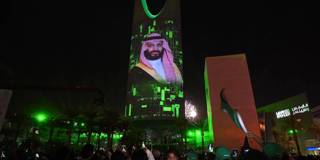In the past, political stability in Saudi Arabia rested on three separate deals: within the royal family; between the royal family and the Kingdom’s traditional elites; and between the state and the population. With the sharp fall in oil revenues, this political order has become unsustainable.
NEW YORK – Most efforts to comprehend the dynamics of Saudi Arabia’s ongoing political earthquake have focused on the psychology of the young crown prince, Mohammed bin Salman. But there are also structural reasons for Prince Mohammed’s brand of populism. Understanding these factors is key to finding a better path forward.
In the past, political stability in Saudi Arabia rested on three separate deals: within the royal family; between the royal family and the Kingdom’s traditional elites; and between the state and the population.
The deal within the Al Saud family is rooted in asabiyya – the ability of an ambitious tribe to stick together to monopolize power. But the royal family has grown too large and become too divided to justify the cost of maintaining its unity. Loosely estimated, the 5,000 or so third-generation princes and their entourage consume $30-50 billion per year.

NEW YORK – Most efforts to comprehend the dynamics of Saudi Arabia’s ongoing political earthquake have focused on the psychology of the young crown prince, Mohammed bin Salman. But there are also structural reasons for Prince Mohammed’s brand of populism. Understanding these factors is key to finding a better path forward.
In the past, political stability in Saudi Arabia rested on three separate deals: within the royal family; between the royal family and the Kingdom’s traditional elites; and between the state and the population.
The deal within the Al Saud family is rooted in asabiyya – the ability of an ambitious tribe to stick together to monopolize power. But the royal family has grown too large and become too divided to justify the cost of maintaining its unity. Loosely estimated, the 5,000 or so third-generation princes and their entourage consume $30-50 billion per year.